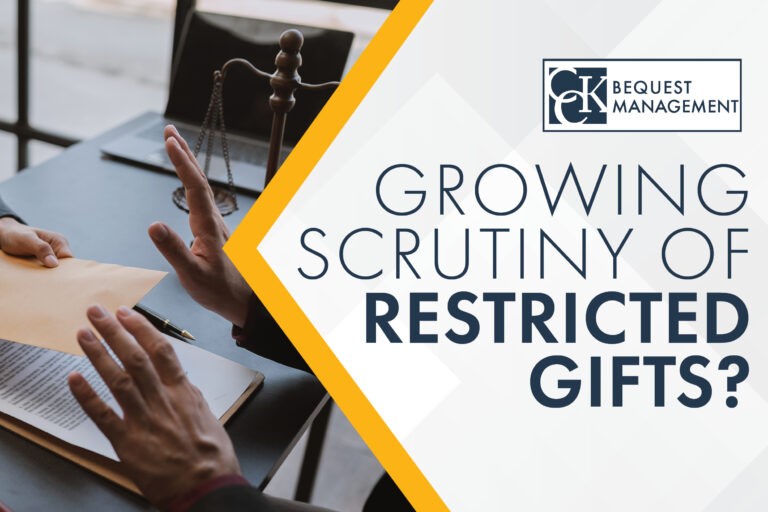Growing Scrutiny of Restricted Gifts?

(Originally published on LinkedIn on November 20, 2023)
Earlier this year, the State of Kansas enacted legislation (The Donor Intent Protection Act (“DIP”)) granting donors and their legal representatives (including executors) the right to sue a charity for deviating from the agreed restrictions on an endowment gift. Frequently, such enforcement is the prerogative of the Attorney General. Although the Kansas enactment is quite limited in scope, it is a little surprising that the issue of restricted major gifts generated enough attention to warrant legislation. DIP provides a limitations period of forty years from the date of the endowment agreement.
Notably, while Kansas was passing its act, Ohio was rejecting a similar proposal. Opponents in the Buckeye State warned that such a law would foment litigation and subject charities to crushing legal fees. In the same vein, some wondered if a DIP-type statute might cause Ohio donors to redirect gifts to charities in other states to prevent post-mortem mayhem.
DIP does not apply to garden-variety restricted bequests, no matter how large. In Kansas, and elsewhere, challenges to the administration of such gifts would still be subject to the inconsistent and unpredictable vagaries of a given state’s law. However, the developments in Kansas and Ohio (as well as the prior passage of a DIP-like statute in Iowa) may presage a new era of restricted gift litigation. Charities would do well to examine and/or adopt policies and procedures for ensuring proper administration of such gifts and the creation of a sufficient record of compliance should a challenge arise.
To stay updated on all things Bequest Management, you can check out our LinkedIn.